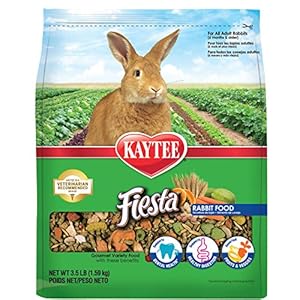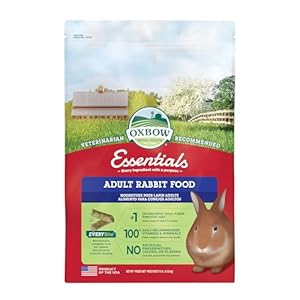A pending proposal from the U.S. Meals and Drug Administration (FDA) might “worsen the catastrophic impacts of antimicrobial resistance” if finalized, based on Senator Cory Booker (D-New Jersey).
On Tuesday, Booker despatched a letter to commissioner Robert Califf expressing considerations about adjustments to “length limits” within the FDA’s revised steering on antibiotic use in animal agriculture. Constantly utilizing medication for lengthy stretches is understood to result in antibiotic resistance. And simply as antibiotics at the moment are prescribed for people for the least number of days doable, the FDA has long recognized the necessity to set limits in feeding them to teams of pigs, chickens, and cows.
Nevertheless, within the proposal, Booker stated, company officers went within the different path and eradicated a 21-day restrict for probably the most vital medication, changing it with pointers that enable programs to be decided on a case-by case-basis. “This can set a harmful precedent by prioritizing the wants of the regulated business over the FDA’s main mission to guard public well being,” Booker stated. “I urge you to finalize Steerage for Trade that meaningfully protects medically necessary antibiotics from overuse.”
Antibiotic resistance is a looming public well being risk that already directly causes the deaths of 1.27 million folks (and contributes to the deaths of 5 million) globally annually. Overuse of necessary medication (i.e., these which might be additionally used to deal with infections in people, normally known as “medically necessary”) on industrial farms is a key contributor to the issue. Consequently, a draft of a United Nations declaration anticipated to be finalized this September requires fully ending the routine use of important medication in agriculture apart from the remedy of sick animals.
The meat business in Europe has already taken important steps towards that objective, however a few of the greatest corporations within the U.S. have lately been backtracking. Final week, lower than a yr after Tyson made a U-turn on its decision to get rid of antibiotics in its hen manufacturing, Bloomberg reported the corporate can be slicing its antibiotic-free beef choices.
Whereas the general quantity of medically necessary antibiotics offered for animals continues to be down in comparison with a excessive in 2015, it has been rising in each pork and beef manufacturing over the previous two years. The FDA is still not tracking precisely how these medication are getting used on farms. Nevertheless, older U.S. Division of Agriculture information showed cattle feedlots routinely add antibiotics to feed for durations of a number of weeks or extra to “forestall, management, or deal with” illness. And in the latest information collected, some pork producers reported using important drugs primarily for development promotion, a apply that has been unlawful since 2017. In that information, producers reported feeding chlortetracycline to nursery-aged pigs for a median of practically 46 days.
Chlortetracycline is an energetic ingredient in a number of of the close to 100 important drugs authorized to be used in animal agriculture that also should not have outlined length limits. Since 2003, the FDA has required corporations to outline limits on how longs medication can be utilized as a part of the approval course of, however many medication nonetheless used right this moment have been authorized previous to that change.
In its 2019 goals for antibiotic stewardship, the company stated it will “work over the following a number of years to ascertain focused durations of use, in order that veterinarians have clear labeling indications and directions on how lengthy to make use of a medically necessary antimicrobial drug.”
However Booker’s letter claims that in revising the documents it publishes to set guidelines for the business, the FDA is doing the other. Booker says the FDA beforehand required security precautions for the usage of some antibiotics—these most important to human well being—in animals, together with limiting general use to 21-day programs. These new revisions, he says, will substitute that restrict with instructions that say “length of use will likely be revised on a case-by-case foundation in mild of, however not restricted to, animal species, illness danger interval, and animal administration husbandry practices, and so on.”
“They’re actually letting the business determine how lengthy [antibiotics] must be used,” stated Steven Roach, the Secure & Wholesome Meals Program Director at the Food Animal Concerns Trust (FACT). “Our greatest concern is that they’re placing animal well being forward of human well being.”
Roach can be a senior analyst for Preserve Antibiotics Working, a coalition of public well being and environmental teams that fights to forestall the event of antibiotic-resistant “superbugs.” In March, a gaggle of organizations within the coalition—together with FACT, the Antibiotic Resistance Motion Middle at George Washington College, and the Middle for Meals Security—sent a letter to the FDA laying out many of those identical considerations. Booker’s letter amplifies their message.
In response to a request for remark, the FDA directed Civil Eats to a earlier response to the Preserve Antibiotics Working letter, through which the company disputed the group’s characterization of FDA eliminating the 21-day length restrict in its revised steering. “Twenty-one days isn’t meant to be interpreted as a regular most length,” the company wrote. The brand new language, it stated, “was added to deal with the various variations throughout animal manufacturing techniques, and doesn’t change the qualitative danger rankings . . . nor does it restrict the Company from contemplating extra use restrictions.”
Trending Merchandise










